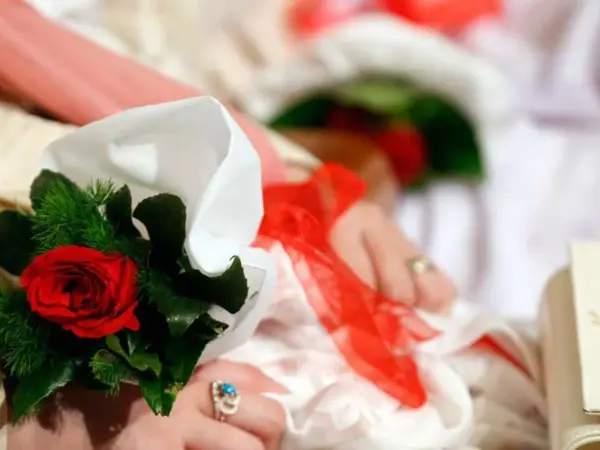A motion to amend laws regarding payment of ‘mehrieh’ (pre-nups for brides) in Iran has sparked controversy that it could benefit men but be detrimental to women.
The motion signed by fifty lawmakers will likely be given priority in parliament. If turned into law, men will no longer be prosecuted by law for not paying the mehrieh if they do not have the means to pay and their assets cannot be frozen by the court to make them pay.
Mehrieh (affection) is assets (usually gold coins) the husband agrees to give the wife in a prenuptial agreement if they divorce or whenever the wife demands it.
For many Iranian women, this could mean getting a divorce becomes potentially harder as according to Iran's Sharia-based laws of matrimony, only men have the right to divorce. Some women use their mehrieh to encourage their husbands to divorce them by forsaking it altogether instead of demanding payment or by asking for a smaller sum if he agrees to the divorce.
Fatemeh Ghasempour, chairwoman of the Women’s Faction in the parliament, is among the critics of the proposed law. “Prosecution of men [who refuse to abide by their mehrieh pledge] will be impossible if the motion passes,” she said adding that the law would encourage more men to refuse to pay and deprive women of mehrieh as leverage in getting a divorce.
Mehrieh can be in the form of money, property, jewelry, or whatever the bride-to-be demands, even a flower when a future wife wants to make a statement about her love and devotion.
Payment, whether large or small in value, is required by the Sharia law and its amount and form are stated in Iranian marriage certificates.
In Iran mehrieh was traditionally paid in cash or in the form of land or other property, but in the past few decades gold coins issued by the government have become the normal form of mehrieh. The value of the coins naturally fluctuates.
Families negotiate the amount of mehrieh before the wedding, much like lawyers in the West negotiate pre-nups.
The number of coins demanded by the bride’s family often has religious significance. Many brides ask for fourteen coins to represent the 12 Shia imams plus the Prophet and his daughter Fatima. But the number can also be representative of the future bride’s year of birth or any given number such as 100 or 1,000. A woman born in 2001 (1380 in the Persian calendar) may demand 1380 Bahar-e Azadi coins the total value of which amounts to over $660,000 in the Iranian market now.
If the parliamentary motion passes, the state will also charge a tax, payable by both sides, at the time of registration of the marriage depending on the value of the pledged gift. The mehrieh tax is meant to lower the astronomically high mehrieh many women and their families demand from grooms these days.
It is not clear if the motive behind the new law is to make marriage easier. After all, the parliament is dominated by hardliners loyal to Supreme Leader Ali Khamenei who has repeatedly called for Iran’s population to increase to 150 million.
Mehrieh debts have landed thousands of men who refused to pay in jail over the years, both before and after divorce. Based on current laws, courts will make men pay in monthly installments if they claim they cannot pay the total all in one go.
